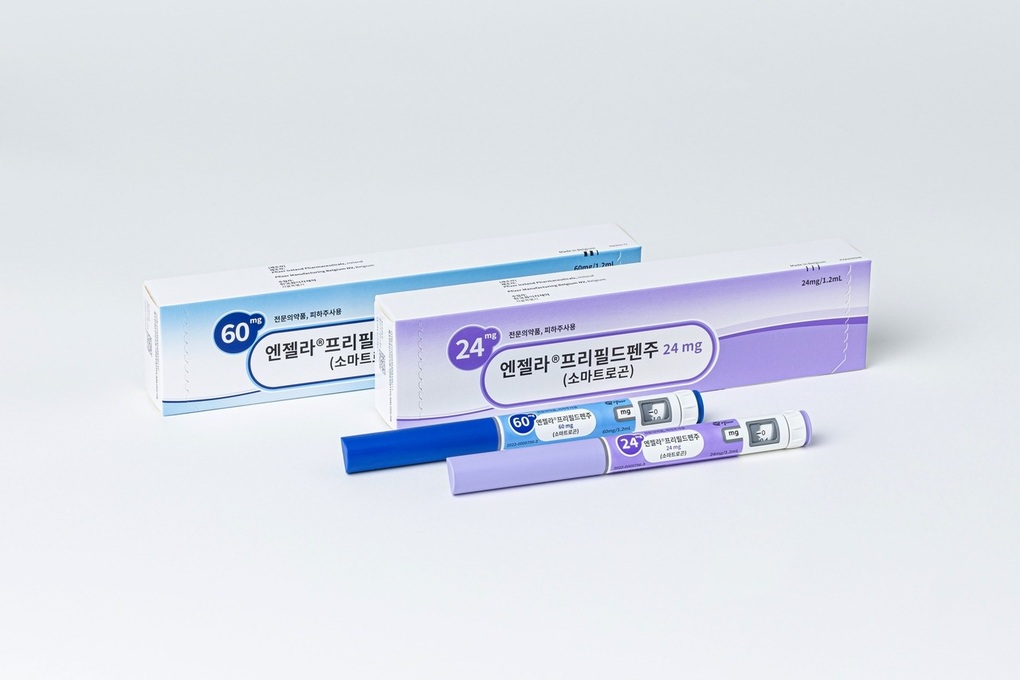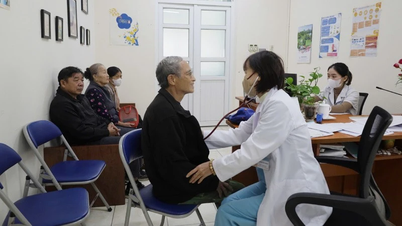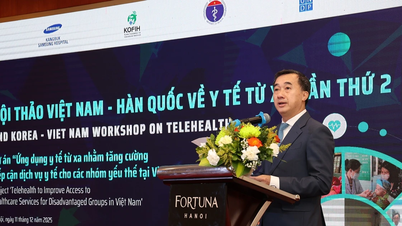In the context of South Korean society, where height is increasingly valued, many parents are spending money on supplements to help their children grow taller. This is causing concern among health experts, especially as more and more parents are neglecting other basic factors that contribute to natural height growth.

Many South Korean students are given height-increasing supplements or hormones by their parents starting from the age of 5 (Illustrative image: Unsplash).
Children start taking height-increasing foods and hormones from the age of 5.
According to the latest survey from the Korean Society of Pediatric Endocrinology, in collaboration with Gallup Korea , over 28% of parents with children aged 5-18 have used height-increasing supplements. Calcium and vitamin D are the two most common, with rates of 34% and 32.4% respectively. Notably, nearly 40% of 5-6 year old preschool children are given these supplements.
Nevertheless, 75.7% of respondents reported that the supplements were only moderately effective or had no effect at all.
Besides nutritional supplements, many parents also give their children herbal remedies, massage, and growth hormone injections. The rates of using these methods are 17.3%, 12.6%, and 4.6%, respectively.

A type of growth hormone used in South Korea (Photo: Korea Herald).
In South Korea, according to statistics published by the Korea Herald earlier this year, many parents are willing to spend up to 10 million won (equivalent to over 180 million VND/year) to have their children injected with growth hormone. Children typically receive injections every night for 1-3 years.
Initially, this method was only used for children with severe hormonal disorders or genetic conditions. However, an increasing number of healthy children are also using hormones to improve their height.
Despite the high cost, many parents still view this as a "strategic" investment in their children's future.
Statistics from the Health Insurance Review and Assessment Agency (HIRA) show that the number of growth hormone prescriptions nearly doubled in just three years, from 138,537 in 2021 to 269,129 in 2024. The number of patients also increased from 16,711 to 34,881 during the same period. However, according to the Korea Herald, the actual number may be much higher.
Recently, a statistic on the average height of young Asians by the Global Noncommunicable Disease Risk Factors Research Group revealed that South Korea has the second highest average height in Asia, at 175.5cm for men and 163.2cm for women.
Nevertheless, many parents are still not satisfied with this. On average, Korean parents hope their sons will reach 180.4cm and their daughters 166.7cm, far exceeding the current average height. This stems from the country's society prioritizing job opportunities and marriage for those with superior height.

Top 10 countries and territories in Asia ranked by gender (Source: NCD Risk Factor Collaboration).
Korean children sleep less, eat less, and exercise less.
In addition, the study also revealed that many children in South Korea are currently leading unhealthy lifestyles.
Specifically, the amount of time Korean children spend using electronic devices has skyrocketed. 43.5% of elementary school students use them for more than two hours a day during the week, double the amount found in a 2016 study. At the preschool age, 31.6% of children use screens for one to two hours on weekdays.
More than half of the parents participating in the study (55.7%) also reported that their children used the device right before bedtime.
"Using electronic devices right before bed negatively impacts sleep quality," said Lee Hae-sang, Professor of Pediatrics at Ajou University Hospital.
In addition, lack of sleep is also a worrying problem. More than 80% of middle and high school students sleep less than 8 hours a day. This figure is 36.3% and 26.3% for elementary and kindergarten students, respectively.
This amount of sleep is less than the recommendations of the Sleep Association. According to their recommendations, children aged 3-5 should sleep 10-13 hours per day, children aged 6-13 should sleep 9-11 hours, and children aged 14-17 should sleep 8-10 hours.
In addition, a lack of physical activity and unhealthy eating habits are becoming increasingly common in South Korea.
Approximately 15.3% of children reported not participating in any physical activity, while 40% exercised only once or twice a week. Nearly 20% of children did not eat three meals a day, and 7.3% of preschool parents reported their children skipped breakfast.
Based on this research, the Korean Society of Pediatric Endocrinology is urging parents to pay more attention to fundamental factors that contribute to height growth, such as sleep, exercise, and nutrition, instead of relying on supplements or hormones.
"Instead of cultivating a healthy lifestyle, people are turning to supplements because it's easier to implement. However, it's important to note that excessive intake of calcium, iron, or zinc is not beneficial," said Professor Hwang Il-tae, a pediatrician at Kangdong Sacred Heart Hospital.
Pediatrician Lee Young-jun of Anam Hospital, Korea University, also warned that some parents are rushing to give their children hormones and supplements without scientific basis.
"Instead, we should focus on helping children develop healthily through proper sleep, exercise, and diet," he shared.
Source: https://dantri.com.vn/suc-khoe/han-quoc-phu-huynh-do-xo-cho-con-dung-thuc-pham-chuc-nang-tang-chieu-cao-20251026185038700.htm


![[Photo] Closing Ceremony of the 10th Session of the 15th National Assembly](/_next/image?url=https%3A%2F%2Fvphoto.vietnam.vn%2Fthumb%2F1200x675%2Fvietnam%2Fresource%2FIMAGE%2F2025%2F12%2F11%2F1765448959967_image-1437-jpg.webp&w=3840&q=75)


![[Photo] Prime Minister Pham Minh Chinh holds a phone call with the CEO of Russia's Rosatom Corporation.](/_next/image?url=https%3A%2F%2Fvphoto.vietnam.vn%2Fthumb%2F1200x675%2Fvietnam%2Fresource%2FIMAGE%2F2025%2F12%2F11%2F1765464552365_dsc-5295-jpg.webp&w=3840&q=75)



















































![[OFFICIAL] MISA GROUP ANNOUNCES ITS PIONEERING BRAND POSITIONING IN BUILDING AGENTIC AI FOR BUSINESSES, HOUSEHOLDS, AND THE GOVERNMENT](https://vphoto.vietnam.vn/thumb/402x226/vietnam/resource/IMAGE/2025/12/11/1765444754256_agentic-ai_postfb-scaled.png)



















































Comment (0)